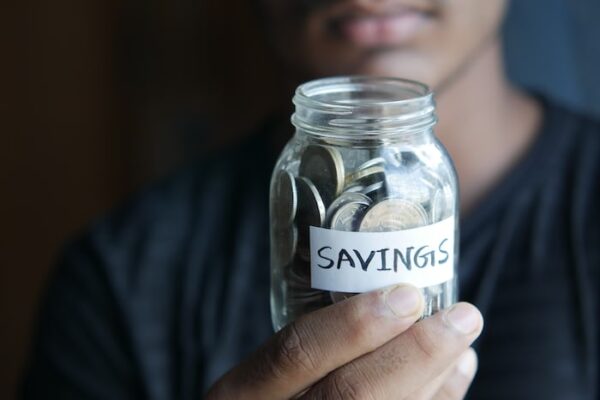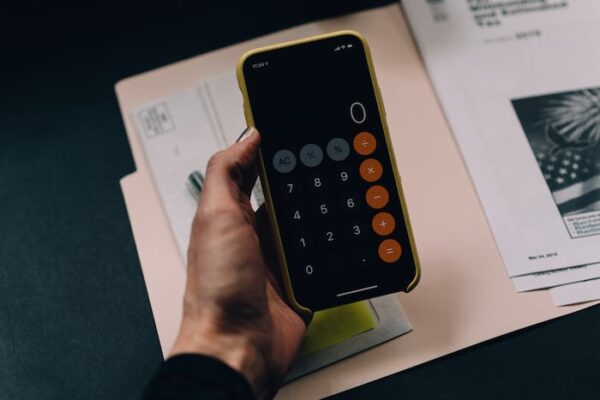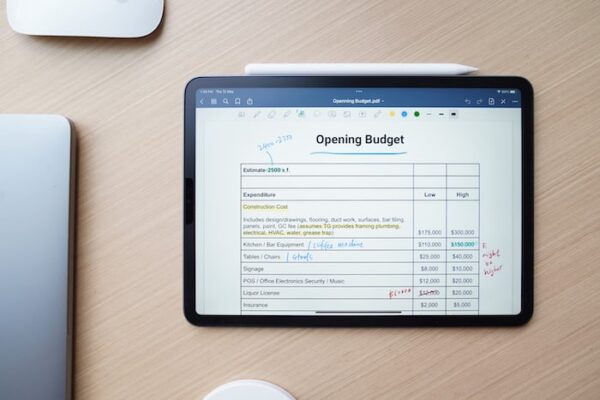Last updated Jan. 13, 2024 by Jessica Green
Living without a budget gives you a sense of freedom, but in the long run, it comes with painful consequences that could destabilize your future and goals.
To be honest, budgeting is no fun. It is a restrictive and overwhelming act. However, it comes with tons of benefits that make your financial life easy.
If you still aren’t interested in creating a financial budget, this article will give you a change of mind. It highlights seventeen devastating consequences of not having a budget.
17 Painful Consequences Of Not Budgeting
Budgeting acts as a guide to your financial life. Without this guide, you’ll tend to experience most of the following consequences:
Increased Debt
Everyone has a moment in life when they need to overspend. Thus, going into debt becomes unavoidable. However, if you’re always needing to use your credit cards, it is due to your inability to budget.
Having a budget gives you an awareness of the state of your financial life. Without this awareness, you’ll always fall victim to impulse spending. And one thing is sure, impulse spending will lead you into debts that could have been easily avoided.
The more you spend impulsively, the more debt you’ll accrue for yourself. And if you’re slow to realize or correct this impending doom, you’ll fall into a financial crisis.
Inability To Save

A financial budget gives you a clear picture of the total amount you receive as income in a month. With this information, it becomes easy to manage how you allocate funds to expected expenses. And if you intend to save a certain amount, you can easily know how and where to cut down on expenses.
For example, if you earn about $3,500 monthly and wish to save $700 every month, you can easily make out how to live on $2,800 with a budget. But if you don’t have a budget, you’ll tend to spend recklessly, thus preventing you from having enough to save.
Bad Credit Score
People who don’t budget have one thing in common, which is unpaid debts and loans. When you don’t budget, you become prone to overspending, which eventually leads you into debt. With your financial life in a mess, paying off the debts will prove difficult, thus, damaging your credit score.
Getting addicted to the use of credit cards is very easy. Once you develop the habit of buying things on credit, it becomes difficult to stop. And if you max out your credit card, paying off the debts becomes even more difficult. When this happens, your credit score bears the brunt.
A credit score shows how responsible you are towards paying off your debts. A high credit score means you’re financially responsible, but a low credit score indicates your inability to maintain a good financial life.
With a negative or low credit score, it’ll be difficult to take out loans in the future. Thus, it is important to always maintain a good credit score by budgeting.
Struggle To Meet Financial Goals
If you plan to get a new car or save for college and emergencies, you’ll need to create a budget. With a budget, you can know how to cut your expenses and how much to allocate each month to your savings. But if you don’t budget, you’ll lack in-depth knowledge of your financial situation and will struggle to meet any financial goal you set for yourself.
Creating a financial goal for yourself isn’t enough. You also need to outline how to achieve them. For example, if your financial goal requires that you save $500 each month, but you make $2,500/month and spend $2,300 each month, here’s what to do.
Make a list of all your expenses in a month, and cancel out the unimportant ones. You also need to cut down on the amount you allocate to the important stuff. If you still can’t meet up with the $500 saving goal, take up a side hustle. Budgeting enables you to know how capable you are of meeting financial goals, and when you need a side hustle.
Develop Overspending Habit
When you lack awareness of your financial situation, you’ll develop the bad habit of spending beyond your means.
Aside from helping you meet your financial goals, budgeting also gives you financial understanding and makes you more reserved in spending. When you’re conscious of every expense you make, it’ll be easy to spend within your means.
However, life without a budget is less restrictive. Since you lack consciousness of your financial situation, you’ll spend without care. And once you begin to use your credit card to pay for things you don’t have the money for, you’ll never actually stop until you max out on the card.
Another Interesting Article: 11 Causes of Overspending and How to Avoid it
Lack of Financial Control
Having no control over your finances is the worst that can happen to you. Lack of control opens you to a life of debt, financial stress, dissatisfaction, and constant anxiety. Additionally, if you can’t get a handle on your expenses, income, and savings, you’ll be swayed by the storms of life.
One way to get in control of your finances is by budgeting. With budgeting, you can direct your income on where to go and where not to go. You can also know your ground, how to salvage an emergency, and whether to adjust your financial life.

Financial Stress And Anxiety
Not reaching your financial goals and not knowing where all your money goes each month can put you under stress and anxiety, which in turn can lead to depression, low self-esteem, and substance abuse.
When you have no budget, insight, and control over your finances, your mind becomes unstable. You’ll begin to worry about having enough to last you until your next paycheck.
On the other hand, budgeting gives you peace of mind. Since you control where your money goes, and how it is working for you, you become less anxious and more satisfied with your life.
Another Interesting Article: How to Cultivate a Budgeting Mindset in 4 Easy Steps
Difficult to Pay Off Bills
During the start of each month, everyone with or without a budget allocates funds for expected bills to be paid. These bills can be anticipated, and are often for rent, utilities, subscription, and insurance.
However, certain unanticipated bills come up at the middle or end of the month. They may include car repair emergencies, appliance repair, or medical bills. To pay these bills, you must have a budget that includes savings for emergencies – this is why having a budget is important.
If you have no budget for emergencies, paying off these bills becomes difficult. And you’ll find yourself in a situation that requires you to take out loans.
Inability To Invest
To invest, you need funds. And one way to get funds is by saving. How do you save? By making a budget!
Budgeting allows you to determine how much money you need to put out each month to meet your financial goal. It also allows you to develop control over your finances – this is important for investment.
Additionally, there are certain attitudes and behaviors you need to cultivate to become a good investor. When you create a budget and stick to it diligently, you’ll naturally develop the attitude.
Impending Crisis
As you know, a financial life without a budget leads you into debt. And once you’re in debt and unable to find a solution out of it, you can easily go bankrupt and lose every asset you own.
Lack of budgeting, planning, and foresight brings about financial crisis that takes time to deal with. So if you’re currently not budgeting your finances, there’s a high chance you’re a few steps away from financial disaster.
To avoid this situation, take budgeting seriously. A budget puts you in a position where you can monitor and manage impending crises. It also allows you to find and cover up loopholes in arise in your financial life.
Unexpected Expenses

Whether you budget or not, you’ll be met with unexpected expenses. These types of expenses which include car repair emergencies or medical bills are capable of throwing you into debt or leaving you short on money. If you have a budget, you can be prepared to evade the situation by taking out of your intended savings or cutting down on other expenses.
However, having no budget means having less or no savings to salvage the situation.
Additionally, a lack of budgeting leads you to incur unexpected expenses. You tend to make financial mistakes since you have no insight into how and what to spend to have enough for savings.
Scramble During Financial Emergencies
Financial emergencies happen from time to time. It could be sudden job loss, home appliance repair, car breakdown, or theft. Whichever one it is, you’ll be required to use saved-up funds to settle the problem.
But what happens when you have no savings or budget for emergencies? You’ll scramble.
Not budgeting for emergencies can lead you to make difficult decisions like borrowing from family or digging into your retirement savings. In most cases, you’ll have no choice but to go into debt.
Having a budget for any emergency is important. It enables you to avoid entering into financial difficulty.
Lack Of Financial Contentment
Financial contentment means being satisfied and happy with your financial situation. One of the first steps to financial contentment is budgeting. With a budget, you know what you can really afford, making you cut your coats according to your size.
Lack of budgeting, on the other hand, causes discontentment. When you have no budget and financial plan, you start comparing yourself with friends or family. Once the comparison begins, it could lead you to spend beyond your means in a bid to catch up with others’ lifestyles. And once you start spending beyond what you can afford, you’ll go into debt.
Inability To Teach Your Children About Budgeting
If you’re a parent, teaching your kids how to make and manage money is important as it helps them make better financial decisions in the future.
Teaching kids how to make money may be easy, but teaching them how to save, budget, and stick to a budget is often difficult.
Kids learn better from imitation. If you’re a careless spender with no family budget, your kids will tend to imitate your behaviour which can lead them to make harmful financial decisions later in life.
You are a role model to your children, and the way you act towards your finances will reflect on your kids. If you budget and spend money wisely, there’s a high chance your kids will follow this path.
No Plans For Retirement
Living without a budget means you can spend money however you want. Although this is fun and unrestrictive, it also means you have no plans for retirement.
One main benefit of a budget is that it allows you to save for emergencies, a marriage, retirement, and whatnot. When you understand your finances and put out money each month for savings, you’re planning for retirement or whatever problems that could arise in the future.
During retirement, you may have no major source of income to support yourself. If you don’t make a budget now and save, you’ll become a liability to your family or kids.

Lack Of Priority
To create a budget, you need to know your income and spending habits. In addition, you also need to list out your savings plan and financial goals. All these processes help you realize your life priorities. Once you understand these priorities, you can list them in order of importance and include them in your budgeting plan.
But if you’re not into budgeting, it may be difficult to know your financial priorities. Should I start saving for retirement or pay off my debt? Is it time to take out a mortgage loan? Should I go on a trip? What financial decision is suitable for me? All these questions can be answered if you have a clear understanding of your finances through budgeting.
Lack of Emotional Security
Emotional security means having an emotional sense of stability, safety, and confidence. This often occurs when you have a healthy relationship with people and a good financial situation.
People who budget have a sense of confidence in their emotional well-being. They have no impending financial crisis to worry about, thus they can form a healthy state of mind. This isn’t the case for people who don’t budget.
People with no budgeting plan are often in a state of worry. They constantly worry about the future and to pay off debts. This prevents them from having a sense of stability, safety, and confidence.
5 Benefits of Having A Budget
Most people create budgets to save money. However, there are tons of other benefits associated with budgeting. Some of them include:
Financial Control
A budget puts you in control of your finances. It enables you to know your expenses and the reason behind them.
Additionally, budgeting takes away surprises from your financial life. It gives you direction and enables you to evade impending financial crises that could arise.
Enables Savings and Investment
Investment is one of the best ways to amass wealth and prepare for retirement. But to invest, you need funds that can be gotten through savings. To save, you need to budget.
Helps Avoid Debts
A budget gives you a clear picture of what you can afford and what you cannot. Thus, it helps you to spend without going into debt.
If you’re already in debt, a budget can also help you get out of it. Once you understand your spending habits, you can know how to cut down on it to save money that can be directed towards paying off loans.
Financial Cushion During Emergencies
Financial emergencies have the ability to throw you off balance. But if you have a budget that includes savings for emergencies, you can get back on your feet.
Prevents Overspending
When paying for bills, subscriptions, food, transportation, or rent, it is very easy to lose track and overspend. But a budget prevents this from happening.
A budget lists out your income and what to spend. Thus, it prevents you from spending on unnecessary things.
How To Make An Effective Budget
Not all types of budget can help you save or stay in control of your finances. Thus, it is important to know how to create a budget that works effectively. Here’s a simple guide:

Step One: Calculate Your Income
The first step to take when creating a budget is to calculate your net income. Keep track of all your sources of income and know exactly how much you earn monthly.
Step Two: Track and Understand Your Spending Habit
Understanding your spending habits enables you to easily point out areas where savings and changes are possible. For example, if you track your expenses and notice that you spend a lot on subscriptions, you can decide to unsubscribe or seek cheaper subscription deals.
When you understand how you spend, you can create a realistic budget. To track your expenses, study three months’ worth of your bank statement.
Step Three: Point Out The Non-negotiable
Certain expenses are non-negotiable – you can’t cut down on these expenses however hard you try. They include utility bills, healthcare, and rent. Hence, it is important to differentiate between negotiables and non-negotiables.
Make a list of expenses that are negotiable and find out ways to negotiate on them.
Step Four: Set A Financial Goal
To stick to a budget, you need a financial goal that motivates you each time you feel down. Make a list of everything you wish to achieve with your budget and stick it to where you can always see it.
Step Five: Make A Plan
Sticking to a budget is not as easy as it seems. Hence, it is advisable to make a plan on how to stick to a budget.
You can choose to entrust your credit card to a loved one to avoid unnecessary spending. Most apps provide features that let you stay disciplined.
Step Six: Keep Reviewing The Budget
Once you’re done making a budget, conduct regular changes to make it more effective.
Another Interesting Article: 12 Easy And Effective Budgeting Tips For Beginners
How To Make Budgeting Fun
Staying on budget and limiting how you spend money is no fun! But they’re ways to turn it into something fun.
Make Short Term Goals
If you make a one-year or two-year budget, there’s a high chance you’ll end up not sticking to it.
Long-term budgeting can be fun at the start, but you can easily get bored and tired midway. Stick to making weekly or monthly budgets.
Create A Reward System
To make budgeting fun, you can create a reward system that encourages and motivates you.
Each time you stick through a 7-day budget, you can reward yourself by visiting a favorite restaurant or going on a little trip.
Have A Side Hustle
A side hustle increases your income and the potential of achieving a financial goal. Seeing your goals being achieved can be exciting and motivating.
Make Updates To Your Budget
Review your budget on a daily or weekly basis to stay motivated. Once you keep track of all your progress, you’ll be motivated.
Use An Application
Making a manual budget can be stressful and sometimes ineffective. Take away the stress by making use of budgeting applications.
Most apps come with fun features and activities that make budgeting fun.
5 Best Budgeting Apps

If you find manual budgeting stressful, consider using budgeting applications. These applications connect with your financial accounts to monitor your income and spending habits. They also offer tons of features that make budgeting fun.
Here are five best budgeting apps to consider:
Personal Capital (PC)
Personal Capital is a free budgeting app with investment tools. With PC, you can track your expenses, manage wealth, calculate retirement plans, and access a professionally managed investment portfolio.
YNAB
This application does not focus on tracking your past expenses or transactions. Once you receive your income, the app will prompt you to allocate funds for debts, savings, and spending.
GoodBudget
This application adopts the envelope budgeting system.
It allows you to assign money to envelopes. The money in the envelopes can be for savings or paying off debts.
PocketGuard
This budgeting application is suitable for overspenders. It provides all the features that prevent you from spending beyond your means.
PocketGuard also offers an auto-save feature that enables you to meet your savings and financial goals.
HoneyDue
If you plan to budget with a partner, HoneyDue is suitable for you since it allows the linking of two different financial accounts.
In addition, the application enables you to create and place a limit on your spending categories. For example, if you want to limit your family’s monthly data subscription to $50, you can create a subscription category on the app. The app will track you and your partner’s account and will notify you if you’re nearing your limits.
Another Interesting Article: 9 OF THE BEST BUDGETING APPS
Conclusion
Why take the risk and suffer the consequences of not budgeting? Create a budget now! If you still can’t make a manual budget with the steps listed in the above article, then use a budgeting application.
Frequently Asked Questions
What is the 50 30 20 Rule?
The 50-30-20 rule is a budgeting rule that recommends allocating 50% of your net income toward needs, 30% toward wants, and 20% toward savings.
Is Budgeting Hard?
No! Budgeting isn’t hard. If you think it’s stressful or challenging, you’re probably doing it the wrong way.
What Is The 60 20 20 Rule?
The 60-60-20 rule is a rule that helps you balance your financial life. This rule states that 60% of your income should go to needs and debt payment, 20% should be used to settle your wants, and 20% should be saved.







